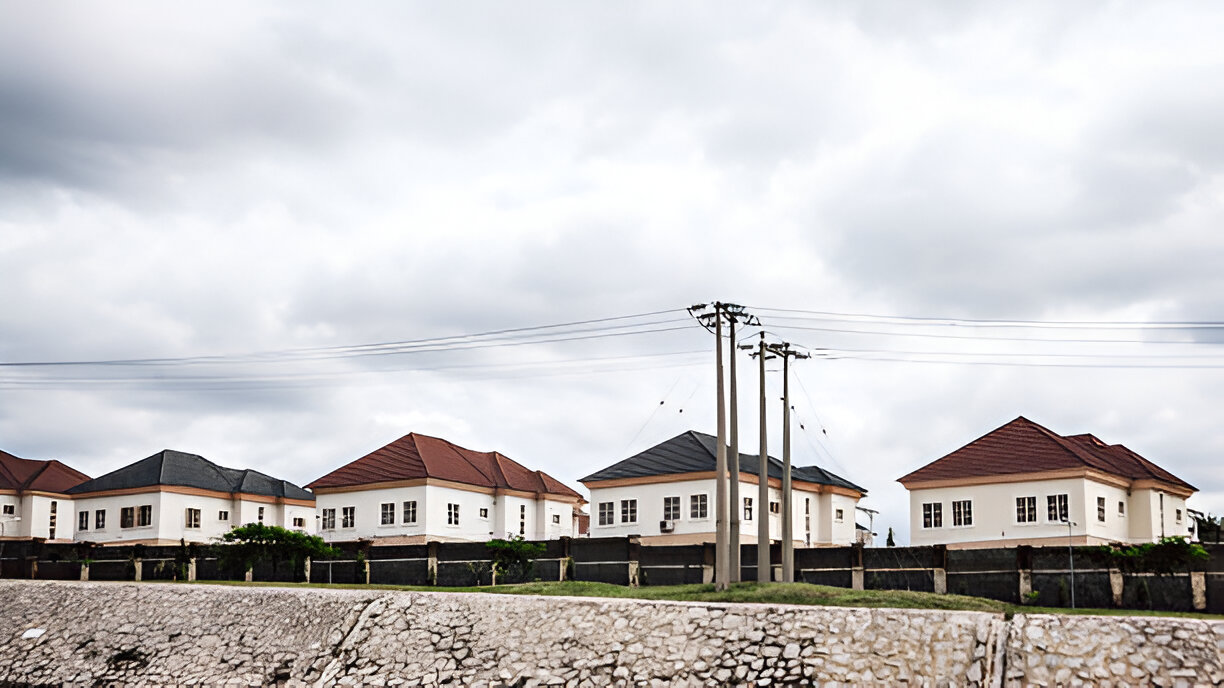Nigeria’s real estate market has seen significant growth over the past decade, with certain regions standing out as prime investment destinations. As the country continues to develop, some areas are emerging as key players in the real estate sector due to factors such as infrastructure development, population growth, and economic activities. If you’re looking to invest in Nigerian real estate in 2024, here are the top five emerging markets to consider.
1. Ibeju-Lekki, Lagos: The New Economic Hub
Ibeju-Lekki has often been dubbed the “New Lagos” due to its rapid development and increasing attraction for investors. Located along the Lekki-Epe Expressway, Ibeju-Lekki is home to several significant projects, including the Lekki Free Trade Zone, Dangote Refinery, and the proposed Lekki International Airport. These developments are transforming the area into an economic powerhouse.
Why Invest in Ibeju-Lekki?
The ongoing infrastructural developments are set to increase the demand for residential, commercial, and industrial properties. As the area attracts more businesses and residents, property values are expected to rise significantly, offering substantial returns on investment. Additionally, the presence of the Lekki Deep Sea Port will further boost the region’s appeal, making it a strategic location for both local and foreign investors.
Potential Risks:
While Ibeju-Lekki offers promising prospects, investors should be aware of potential risks such as legal disputes over land ownership. Conducting thorough due diligence and working with reputable real estate agents or firms is essential to avoid any complications.
2. Epe, Lagos: The Green Haven
Epe, often referred to as the “Gateway to Lagos,” is another emerging real estate market gaining attention. Known for its serene environment and lush greenery, Epe offers a unique blend of rural and urban living. The ongoing expansion of the Lekki-Epe Expressway is improving access to the area, making it more attractive to investors.
Why Invest in Epe?
Epe’s proximity to Ibeju-Lekki and the Lekki Free Trade Zone makes it an attractive option for those seeking more affordable investment opportunities while still benefiting from the development in neighboring regions. The area is also witnessing a rise in residential estates, schools, and shopping centers, which is driving demand for properties. Additionally, the Lagos State government’s focus on developing Epe as a tourism hub adds to its investment potential.
Potential Risks:
While Epe’s growth is promising, investors should consider the relatively slow pace of development in some parts of the area. Long-term investment strategies may be more suitable here as it may take some time for property values to appreciate significantly.
3. Abeokuta, Ogun State: The Historical City with Modern Appeal
Abeokuta, the capital of Ogun State, is fast becoming a preferred destination for real estate investors due to its proximity to Lagos and ongoing infrastructural development. Known for its historical significance, Abeokuta is now transforming into a modern city with several new residential and commercial projects.
Why Invest in Abeokuta?
Abeokuta’s proximity to Lagos makes it an attractive alternative for those looking to invest in real estate without the high price tags associated with Lagos. The ongoing construction of new roads and bridges is improving connectivity, while the presence of several higher institutions and industries is driving demand for housing. The city’s rich cultural heritage also makes it an appealing location for tourism-related real estate investments.
Potential Risks:
The main challenge in Abeokuta is the relatively slower pace of urbanization compared to Lagos. However, as infrastructure improves and more people migrate to the area, property values are expected to rise.
4. Uyo, Akwa Ibom State: The Fast-Growing Capital City
Uyo, the capital of Akwa Ibom State, has been undergoing rapid development, making it one of the most promising real estate markets in Nigeria. The state government’s focus on infrastructure and urban development has transformed Uyo into a modern city with a high standard of living.
Why Invest in Uyo?
Uyo’s appeal lies in its well-planned layout, good road networks, and availability of basic amenities such as electricity and water supply. The city is also home to several major projects, including the Ibom Deep Sea Port and the Ibom Industrial City, which are expected to boost economic activities and drive demand for real estate. Uyo’s relatively low cost of living compared to other Nigerian cities makes it an attractive option for investors looking for affordable properties with good potential for appreciation.
Potential Risks:
Uyo is still developing, and the market may not be as liquid as in more established cities like Lagos or Abuja. However, for investors willing to take a long-term view, Uyo offers significant growth potential.
5. Gwagwalada, Abuja: The Satellite Town with Big Potential
Gwagwalada, one of the satellite towns of the Federal Capital Territory (FCT), Abuja, is emerging as a key real estate market. Its strategic location along the Abuja-Lokoja Expressway and proximity to the Nnamdi Azikiwe International Airport make it a prime area for investment.
Why Invest in Gwagwalada?
Gwagwalada offers a more affordable alternative to the high property prices in the main city of Abuja. The area is seeing a rise in residential developments, driven by the increasing population and demand for housing from civil servants, students, and business people. The ongoing expansion of the expressway and other infrastructural projects in the area is expected to further boost property values. Gwagwalada’s growth potential is also supported by its proximity to educational institutions such as the University of Abuja.
Potential Risks:
One of the risks associated with investing in Gwagwalada is the relatively slow pace of infrastructure development compared to other parts of Abuja. Additionally, investors should be cautious of potential issues related to land ownership and ensure they have proper documentation before making any purchase.
Conclusion
Nigeria’s real estate market is full of opportunities, particularly in emerging areas that are poised for growth. Ibeju-Lekki, Epe, Abeokuta, Uyo, and Gwagwalada represent some of the most promising markets for real estate investment in 2024. Each of these areas offers unique advantages, from strategic locations and ongoing infrastructural developments to affordability and long-term appreciation potential. However, as with any investment, it’s crucial to conduct thorough research and due diligence to mitigate risks and ensure you’re making a sound investment decision. Whether you’re a local investor or a Nigerian in the diaspora looking to invest back home, these emerging markets present exciting opportunities to build wealth through real estate.




